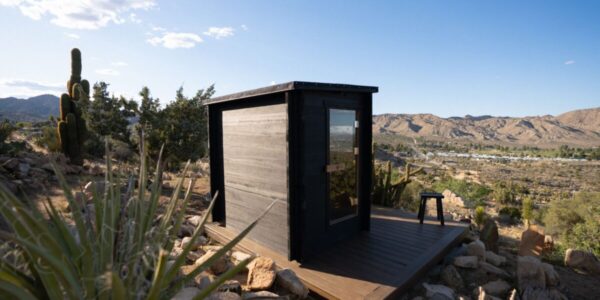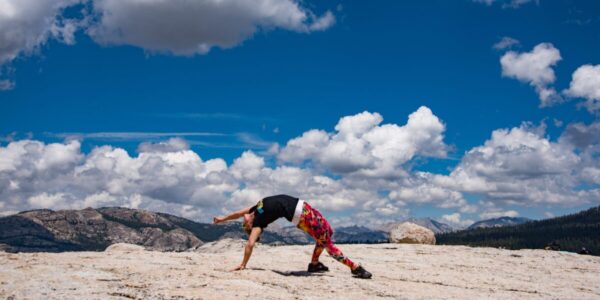
‘We Belong in These Spaces’: This Family Wants Outdoor Adventures for All
Camp Yoshi expeditions bring together people of color and their allies in spaces often considered inaccessible.
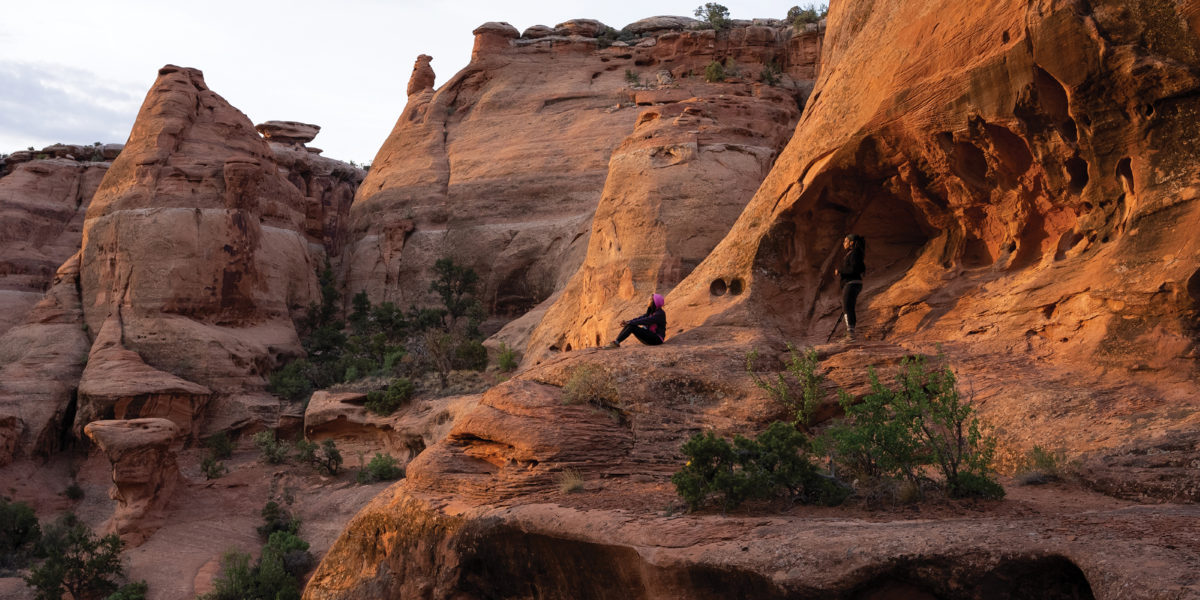
Alex Forestier
Far removed from the deafening chorus of politically charged commentary, civil unrest, and social media venom that pervaded summer 2020, Rashad Frazier, his wife, Shequeita, and his brother, Ron, took refuge among the imposing peaks and azure lakes of Montana’s Glacier National Park.
The temporary respite from societal turbulence, however, was not without its interruptions from the outside world. Calls and texts poured in from concerned friends and relatives whose eyes were fixated on a tumultuous news cycle following the May 2020 killing of George Floyd at the hands of a Minneapolis police officer. “With everything going on in the news, people were asking us where we were, why we were there, and if we were safe,” Ron says.
Unveiling the purpose of their brief expedition steadily eased those concerns, and before hanging up, Ron, a real estate auditor, would extend two simple words of encouragement to the voices on the other end of the call: Join us.
“We thought, rather than tell people how we were thriving in these spaces, why not just show them?” Ron recalls.
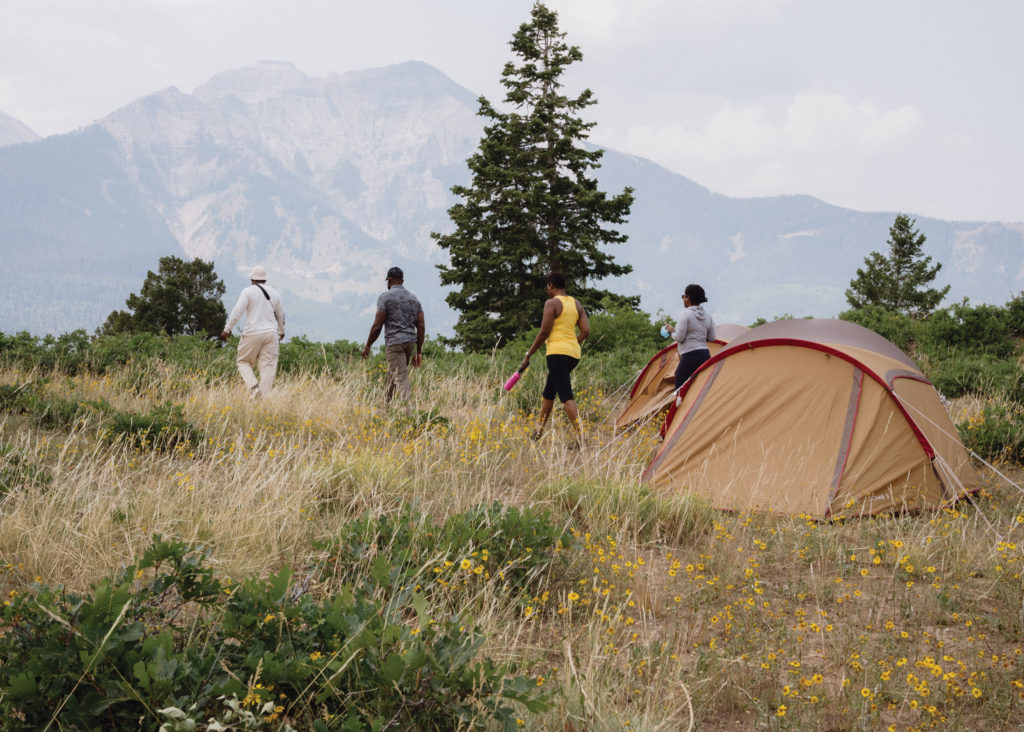
Alex Forestier
The idea that would become Camp Yoshi was off and running. A successful beta trip to Oregon with a dozen friends ensued, setting the stage for meticulously crafted voyages designed to bring together people of color and their allies in outdoor spaces too often considered exclusionary.
“So much of the conversation with our guests centers around the intimidation that comes with not seeing people in the outdoors who look like them,” says Shequeita, who brought a background in corporate retail to Camp Yoshi’s branding and consumer strategies. “To hear that so often just motivates us to do this even more.”
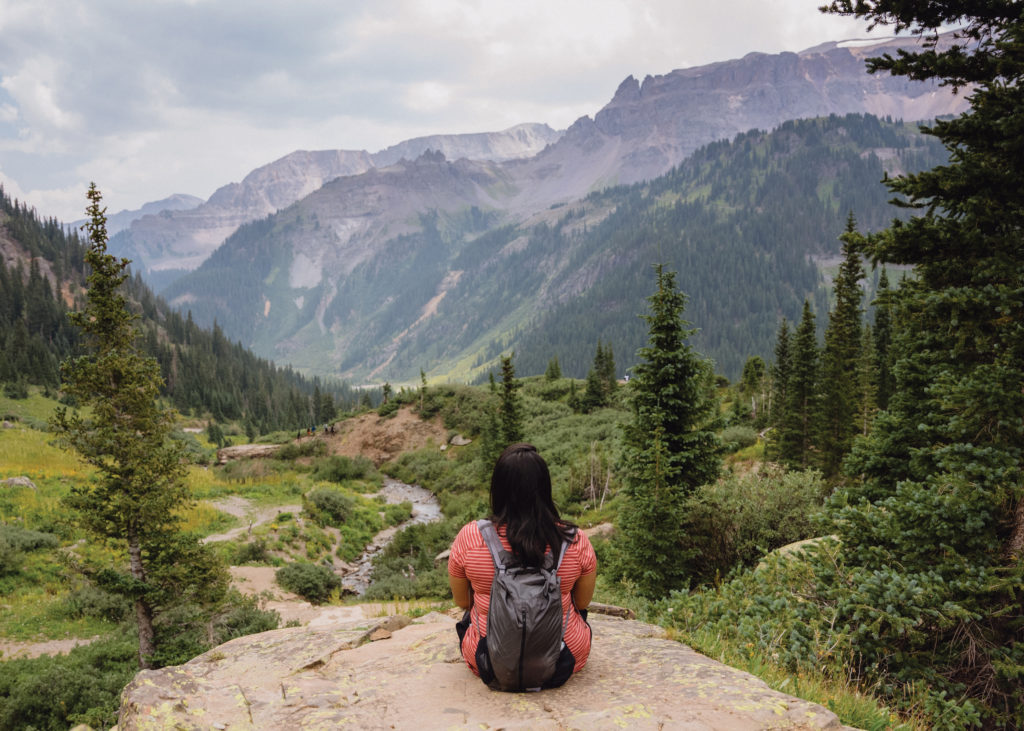
Alex Forestier
Intimidation associated with exclusivity is something Shequeita is all too familiar with. Unlike longtime outdoors enthusiasts Ron and Rashad, she was “the reluctant camper” of the group when they first kicked around the idea for Camp Yoshi.
“I used to be the wife sitting at home asking them, ‘Are you sure you want to be off the map for two weeks with just a satellite phone?’” Shequeita says. “It was just not something I grew up doing in South Carolina. There is a lot of trauma associated with the outdoors in places like where I’m from. Black people traditionally have not had access to those spaces.”
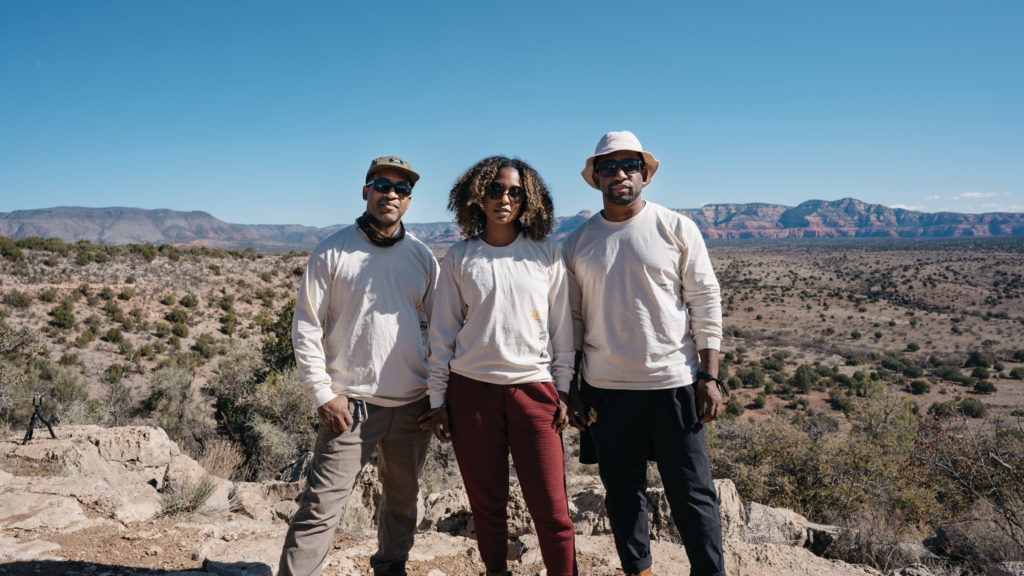
Alex Forestier
Recasting skepticism into enthusiasm was made a bit easier when the couple moved to Portland, where the region’s evergreen forests, Cascade mountains, and picturesque lakes obliterated Shequeita’s once-held notions about the outdoors.
Bringing the Frazier crew’s disarming flair and unique flavor along for the ride didn’t hurt either.
“Food was a big component of Camp Yoshi from the get-go,” says Rashad, who was at the helm of the New York-based catering company Yoshi Jenkins—hence the name—at the time of Camp Yoshi’s inception. “People come out here to have a good time, but we’re definitely going to make sure they’re eating well. We’re not just throwing granola bars at you.”
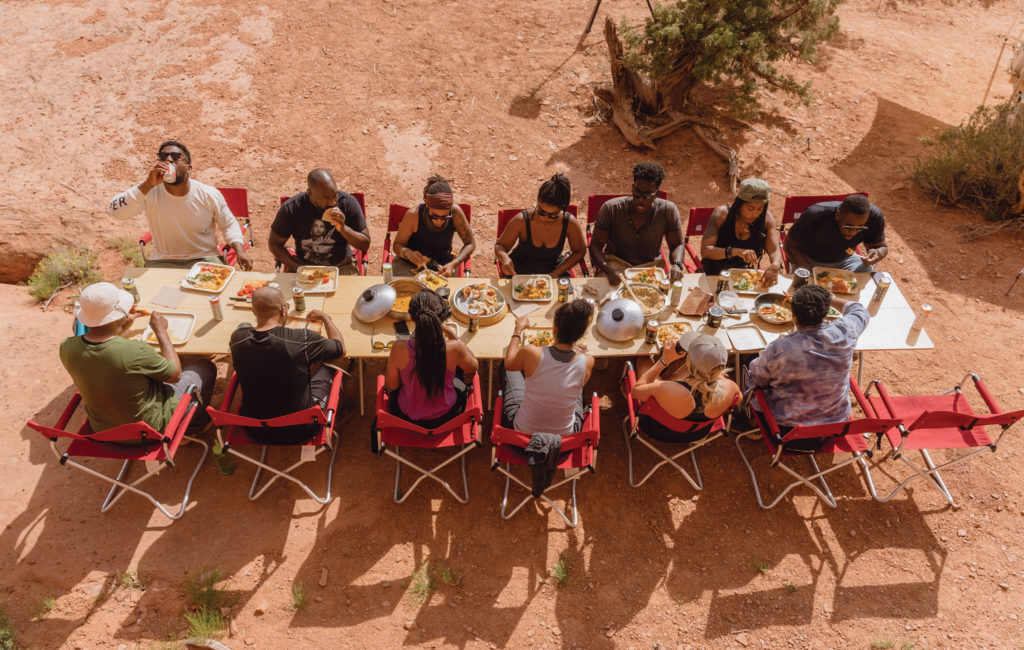
Alex Forestier
For Ron, who now spearheads the logistics of the outings, Camp Yoshi was a realization of something long overdue. “Folks have been waiting for this,” he says. “They just didn’t know where or how. Our role is to say, ‘Hey, you can be in these areas, you can explore, and you can thrive.’”
Four- and five-day excursions to remote corners of the Pacific Northwest, Rocky Mountains, and Southwest have provided guests with experiences so indelible that the crew at Camp Yoshi expanded from seven trips in 2021 to over 20 this year.
Each trip sees guests outfitted with all necessary camping equipment, daily gourmet cooking, and a throng of overlanding, rafting, and hiking adventures. Educational opportunities allow campers to learn about ecosystems unique to particular destinations, and “Leave No Trace” principles ensure these spaces will be preserved for generations to come.
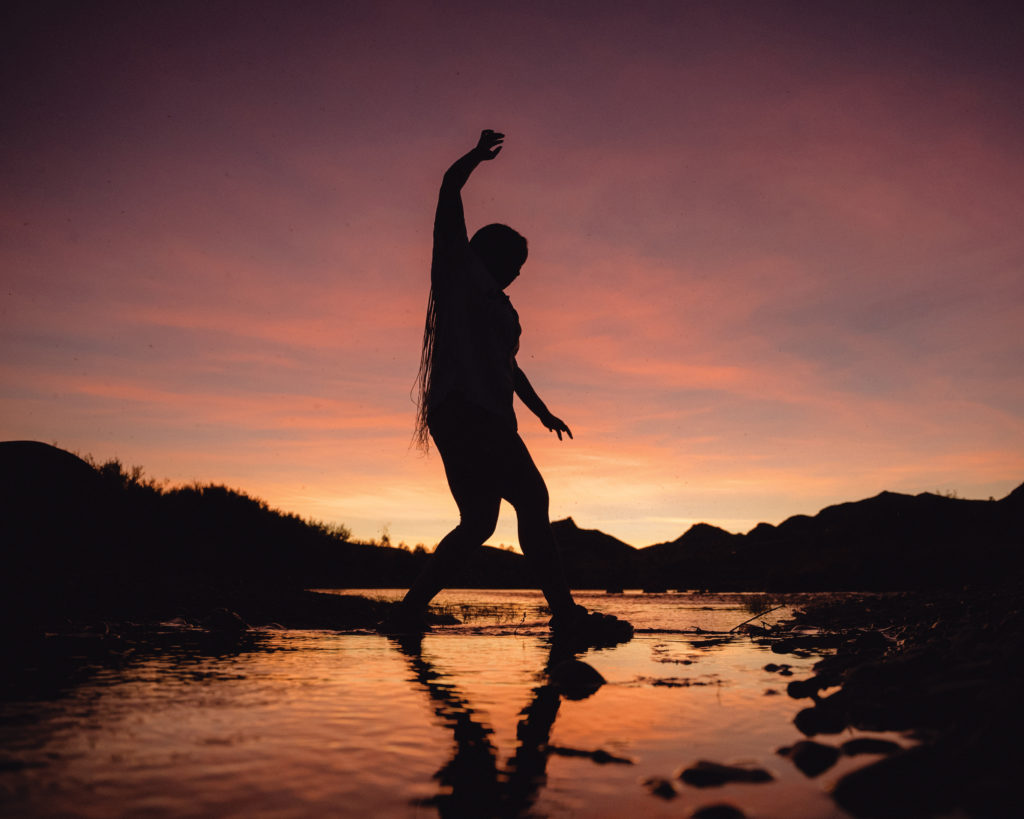
Alex Forestier
“You just have to show up and allow yourself to tap into being thoughtful and present,” Rashad says. “We take care of the rest.”
A soaring rate of campers returning for second or third Camp Yoshi iterations is a testament to the trio’s skill in crafting welcoming environs, but one ongoing surprise for the founders has been the overwhelming rate of female participants. Today, about 80% of Camp Yoshi’s rapidly growing attendance list are women.
“You just don’t see that,” Shequeita says. “Most of these women never thought about the healing power of the outdoors until they came across Camp Yoshi. Taking that leap with us sparked joy. It sparked inspiration. We’re proving we belong in these spaces and we can find the same type of restoration as any other group.”
Once the apprehensive camper, Shequeita now sees in many of her guests the same misgivings that once inhibited her sense of exploration—a dearth of similar faces, beliefs, or cultural experiences, and the precarity that permeates as a result.
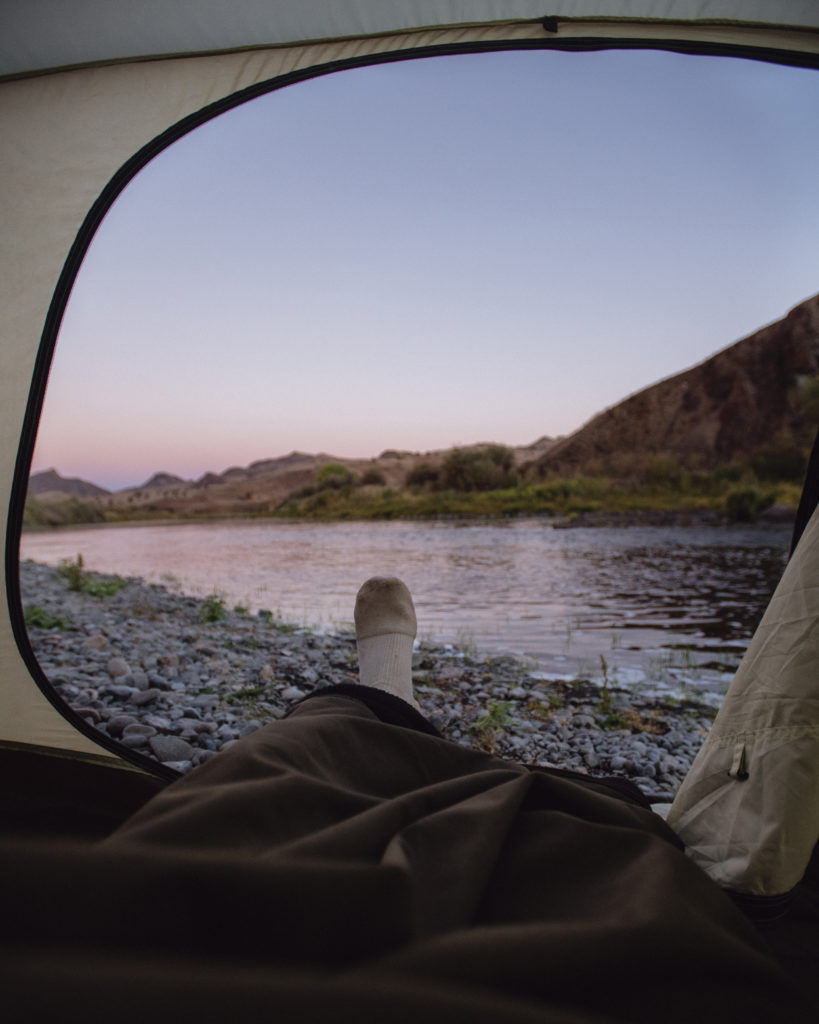
Alex Forestier
Two years removed from their first trip, the Fraziers believe they are just scratching the surface of what Camp Yoshi can do as a community-builder that demystifies what it means to belong. Theirs is a blossoming tradition designed to appeal to the non-traditional. There’s healing here. There’s community. There’s belonging.
“When I moved West, it was really the first time I saw what was so special about the outdoors. It was my first time realizing I want to be immersed in it, that I want my kids immersed in it,” Shequeita says. “I want them to avoid the trauma and fear I once knew.”
Get the Gear
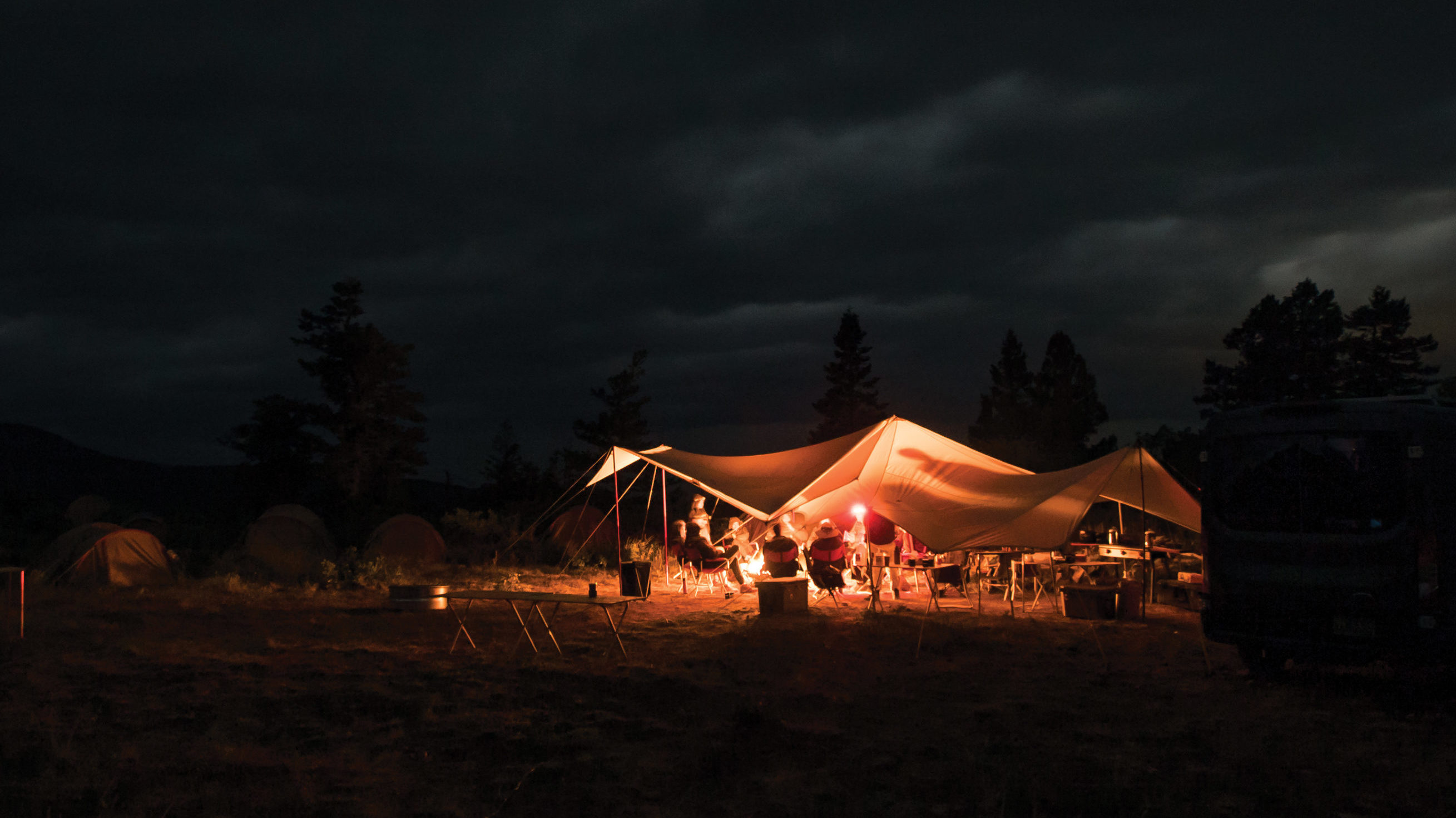
Alex Forestier
“Snow Peak’s Takibi Tarp Octa is one of the tools we bring on every adventure,” Rashad says. “It’s the foundation of our camp habitat and also the ultimate fireproof tarp. It shields our campers from rain and wind, while still allowing you to have a legit fire underneath. There’s no longer any need to worry about keeping warm and dry … and the s’mores just hit different when the Octa comes out.”
Read the Current Issue Here!
Get one year of Sunset—and all kinds of bonuses—for just $29.95. Subscribe now!
